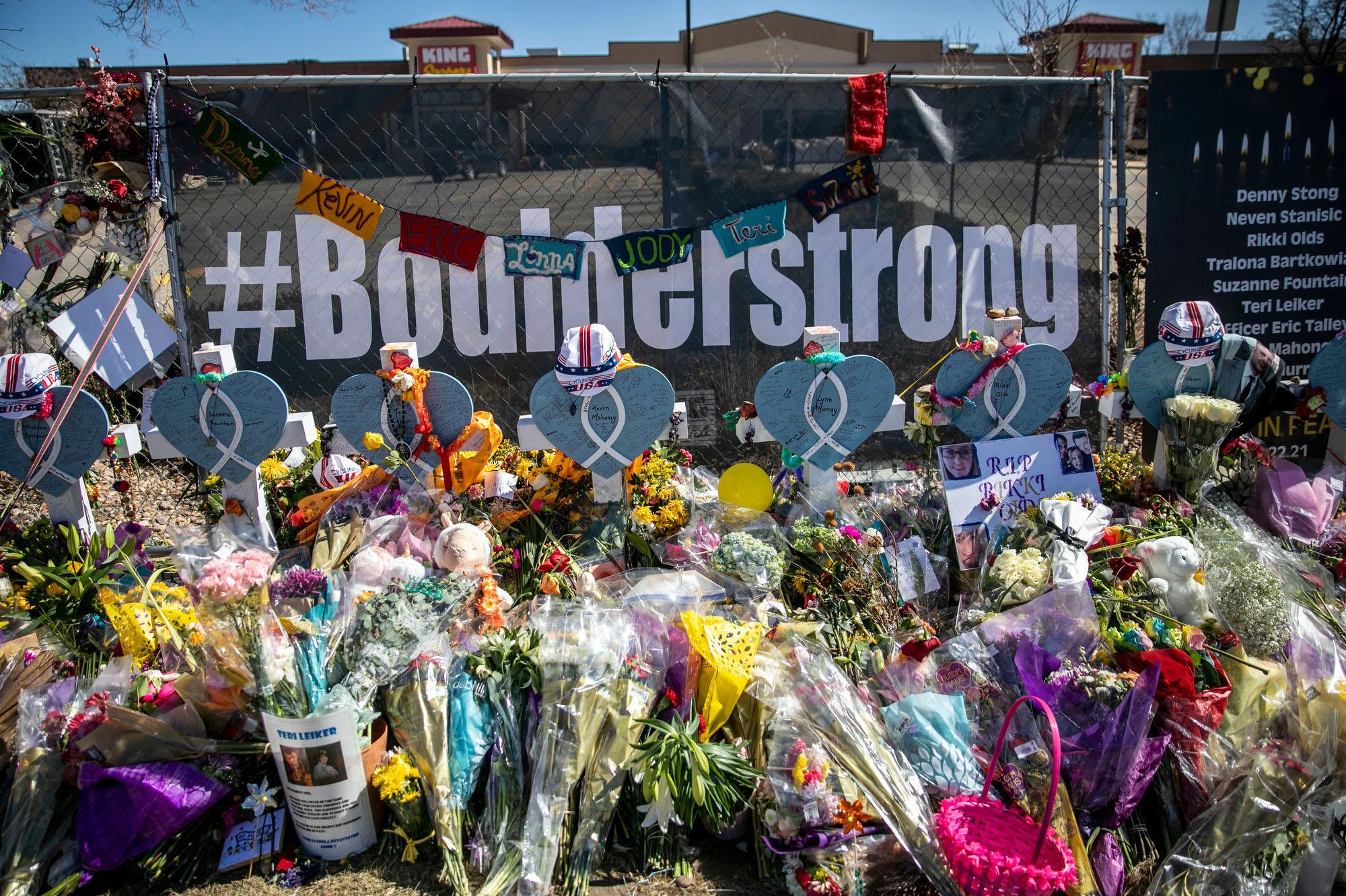
The man accused of killing 10 people at a King Soopers store in Boulder is still incompetent to proceed to trial, but prosecutors are aggressively pushing for a second evaluation to see whether that diagnosis is accurate.
Boulder District Attorney Michael Dougherty has filed a motion seeking an additional opinion from a forensic neuropsychologist to determine whether the symptoms of schizophrenia that the accused shooter is displaying are consistent with a real health disorder.
“The doctors at the state hospital have found him to be incompetent,” Dougherty said. “We have asked that a forensic neuropsychological exam be conducted to determine whether that finding is actually correct.”
The defendant, Ahmad Al Aliwi Alissa, 23, faces more than 100 criminal charges for allegedly fatally shooting 10 people inside a grocery store and the parking lot in March 2021.
That year, a handful of doctors chosen by defense attorneys and prosecutors found that he was mentally incompetent to proceed, which means the defendant is not able to understand the criminal proceedings and cannot assist in their own defense. He was transferred to the Colorado Mental Health Institute in Pueblo in December 2021, where he remains in treatment.
His public defenders on Friday told Boulder’s Chief Judge Ingrid Bakke that doctors picked by the government to evaluate his condition would violate his constitutional rights.
“There is no statutory provision that allows a government to choose a doctor to evaluate our incompetent client,” said Kathryn Herold, a public defender representing Alissa. “We don’t believe the state hospital is in the position to grant that request.”
Bakke gave them 21 days to respond to the evaluation request filed by prosecutors.
Dougherty said communications with the state’s mental health hospital have been a little frustrating because they often don’t respond to requests for additional information or evaluations without a court filing.
“We’ve had to file motions and seek court orders to get certain things provided for us,” he said. “I recognize the state hospital is extremely busy, and you are what your record says you are.”
He acknowledged the backlog of incompetent defendants sitting in jails across the state — currently at about 450 people sitting in jails awaiting competency restoration before they can face criminal charges filed against them. In Boulder County alone, there are 49 people in the jail awaiting competency restoration.
The state has paid more than $20 million in fees because of a federal consent decree that requires mentally incompetent criminal defendants be restored in a timely way.
“It impacts and hampers a prosecutor’s ability to do justice in those cases and to move those cases along,” Dougherty said.
But the vast majority of those defendants face much lesser criminal charges than the accusations faced by Alissa.
Dougherty said the victims in the case are “extremely frustrated” that there have been so many delays in the proceedings.
“They want to see this case move forward, they want to see justice done, they want to see their family members honored and they want to have some form of closure in the justice system,” Dougherty said. “They are incredibly frustrated at the pace of this prosecution because they recognize it’s incredibly difficult for this case to move forward when someone is sitting in the hospital with a finding that they’re incompetent.”









